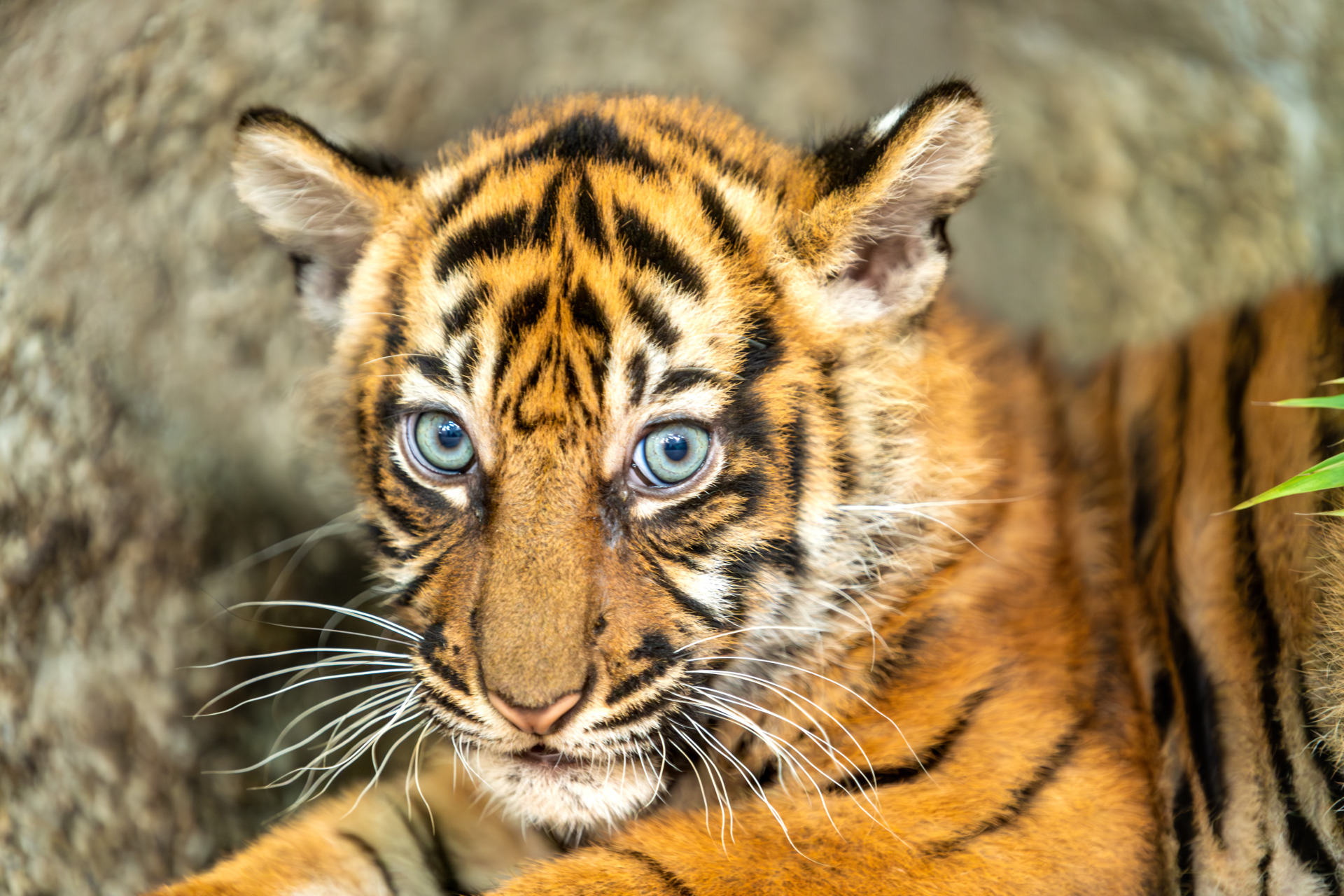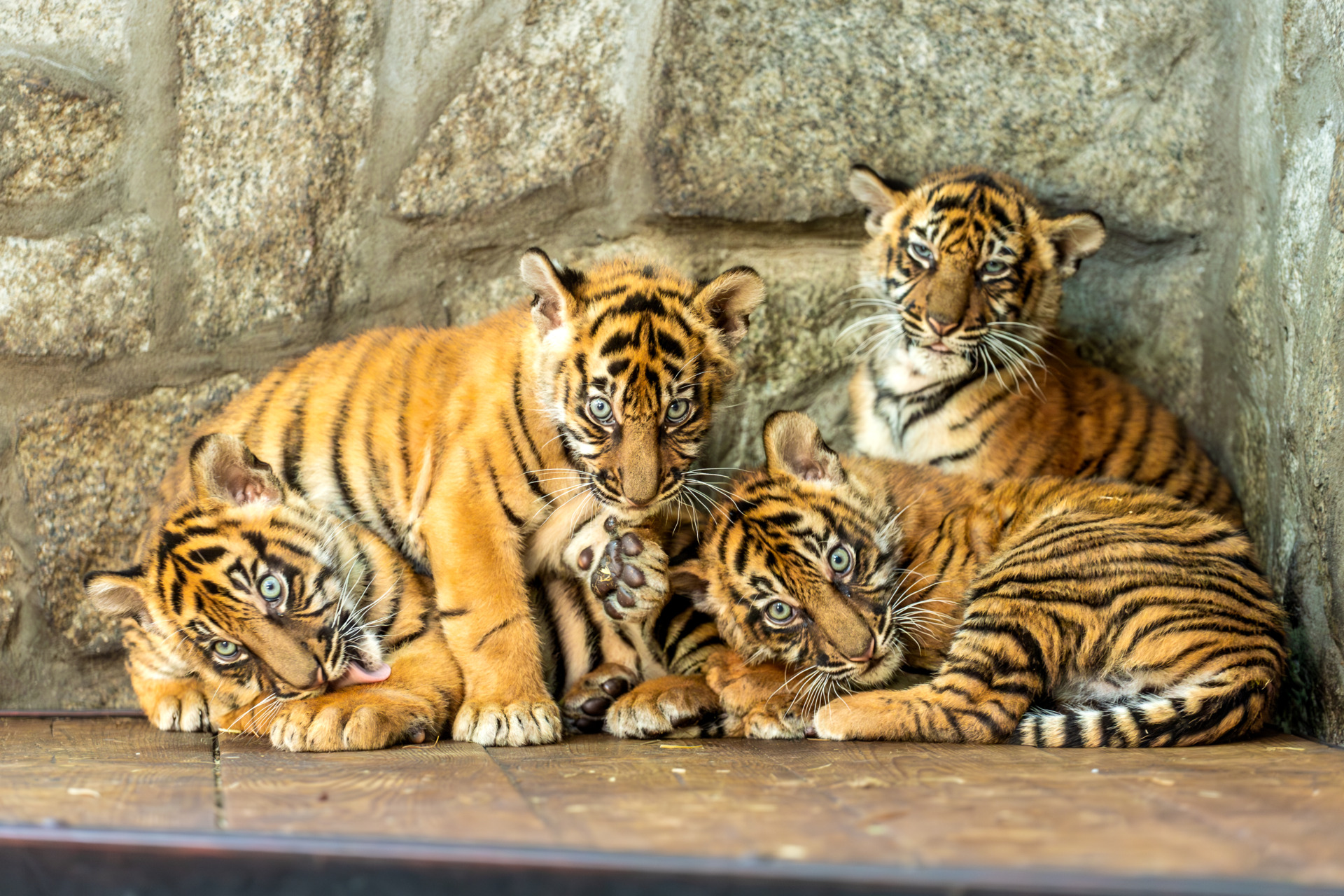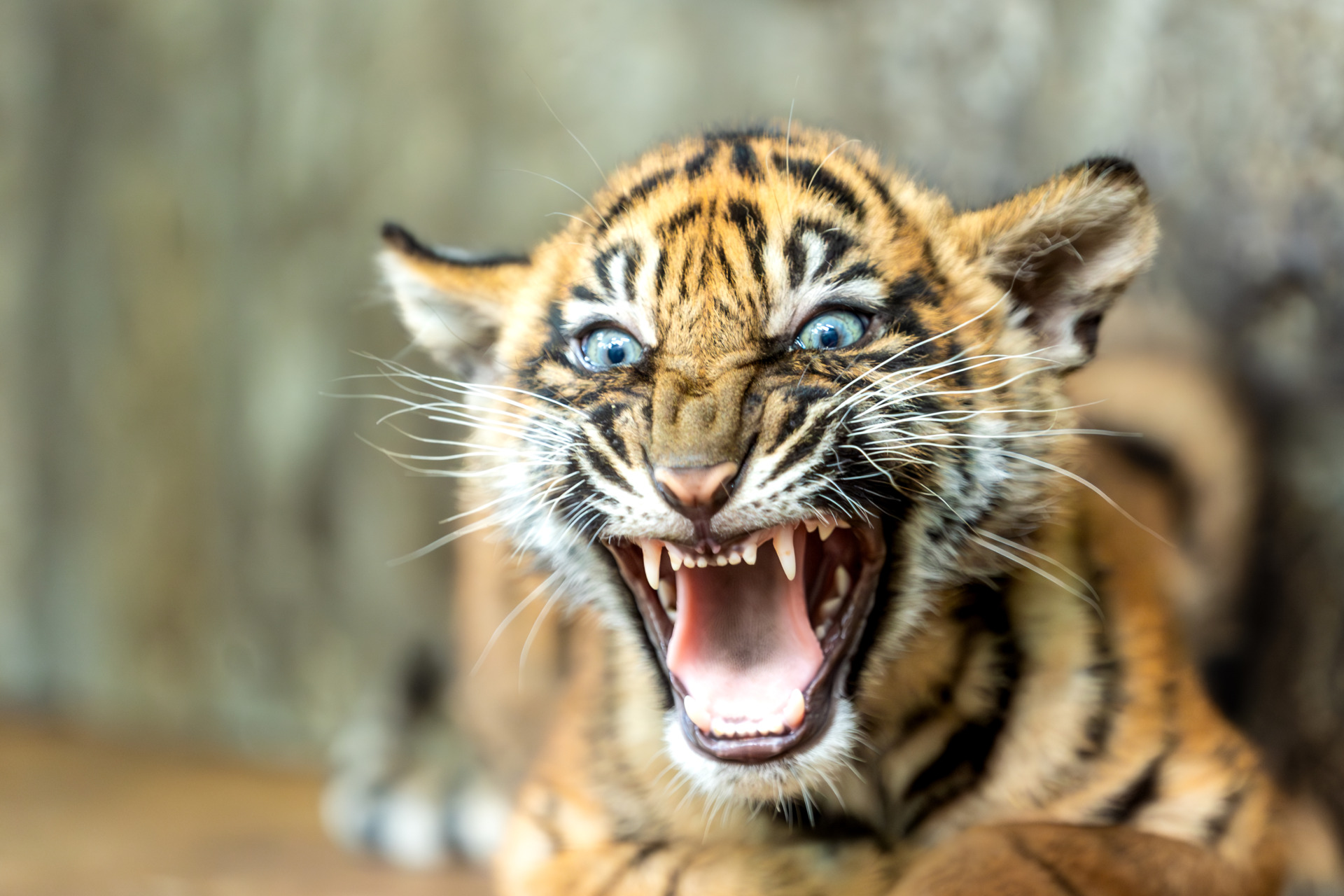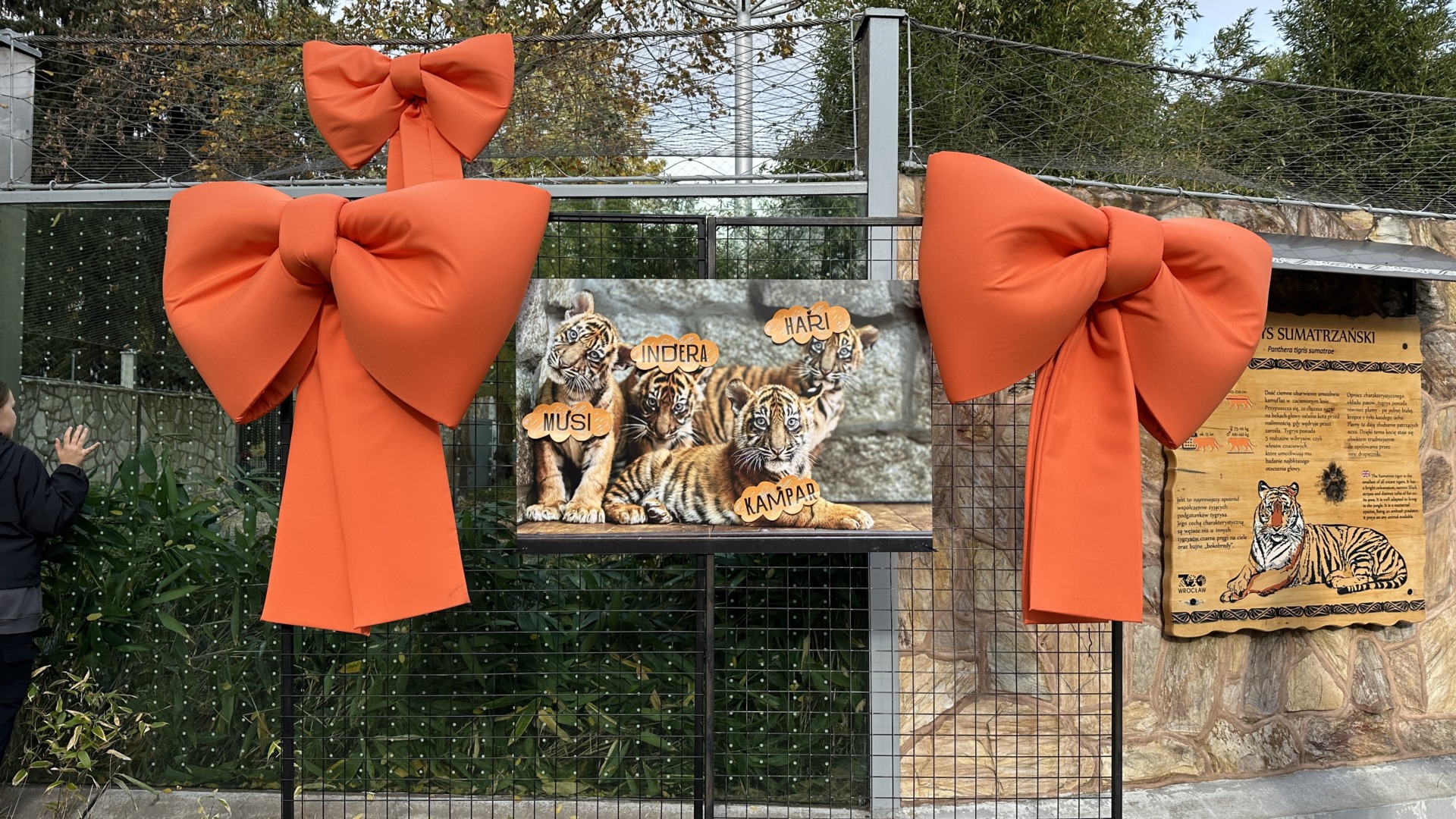Musi, Hari, Kampar, and Indera
News of their birth ignited interest not only in Polish media but worldwide. The Sumatran tigers born at Zoo Wroclaw in July created a well-deserved sensation, as quadruplets of this critically endangered subspecies are rare and a significant breeding achievement. The zoo’s most popular new residents are now named Musi, Hari, Kampar, and Indera, inspired by Indonesian rivers.




The zoo sought help from our zoo’s fans for our Sumatran tigers, who submitted thousands of ideas. Choosing wasn’t easy, but the caretakers selected names reflecting the spirit and character of the cubs, linking them to Sumatra, their native habitat.
“A name should suit the species, be internationally recognizable, as animals often go to zoos abroad, and ideally reflect the animal’s temperament. Inspiration is often found in native languages of the species’ habitat or sometimes in geographical names,”
explains Dr. Tomasz Jóźwik, CEO of Zoo Wroclaw
For our Sumatran tigers, it was also important that the cubs’ names matched those of their parents, Nuri and Tengah, and their sister Surya, who has already left our zoo.
Our zoo fans exceeded expectations, contributing hundreds of comments and emails with thousands of name suggestions. Musi, Hari, Kampar, and Indera, inspired by Indonesian rivers, stood out. Rivers, like tigers, are both calm and majestic, but also powerful, just like the cubs’ personalities.
“Two of our cubs, a male and a female, are more curious and bold than their siblings, and obediently come when their mother calls. The other two males are more independent, slowly exploring the run,”
shares Paweł Sroka, Head of the Predator Mammal Division at Zoo Wroclaw.
Now with names, the cubs need to be distinguishable. The female is most recognizable with a unique heart-shaped marking on her forehead. The males vary slightly in their stripe patterns. Each tiger is also microchipped with an individual number, which helps with identification during vaccinations, treatments, or transfers to other zoos, ensuring the correct tiger is relocated as needed.
Zoo’s Mission: Conservation
The Sumatran tigers are ambassadors of Zoo Wroclaw’s conservation mission. The smallest tiger subspecies, they face threats from habitat loss, poaching, and climate change. Zoo Wroclaw, along with the Zoo Wroclaw – DODO Foundation, supports the Sumatran tiger protection program in Kerinci Seblat National Park, led by WildCats Conservation Alliance. This park is home to 33% of the world’s Sumatran tiger population, making conservation efforts there crucial. Thanks to our support, patrols to prevent poaching, snare removal (with 70 poachers arrested in recent years), and discussions with local communities and authorities are helping to reduce poaching and promote alternative livelihoods.
